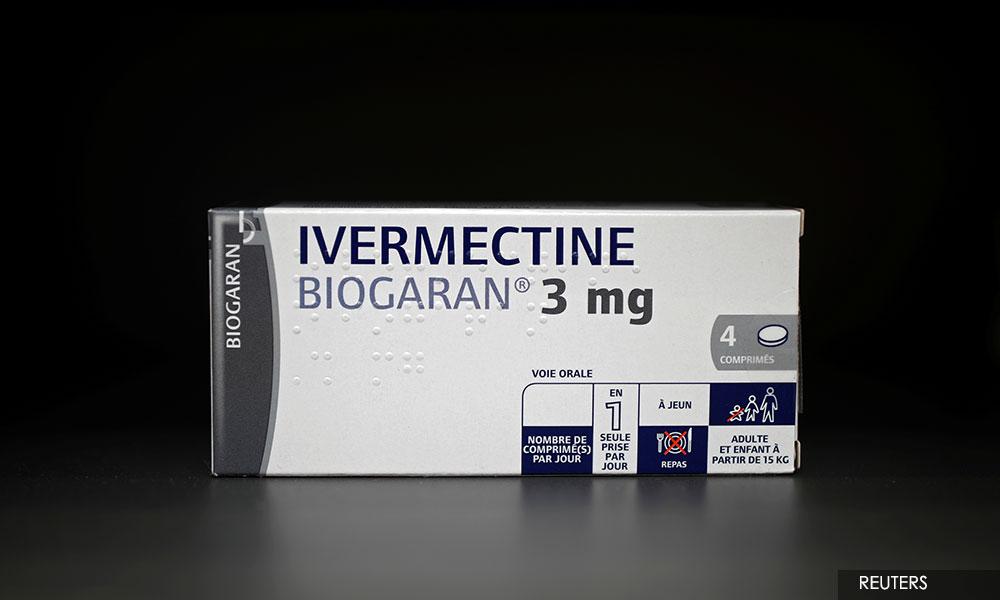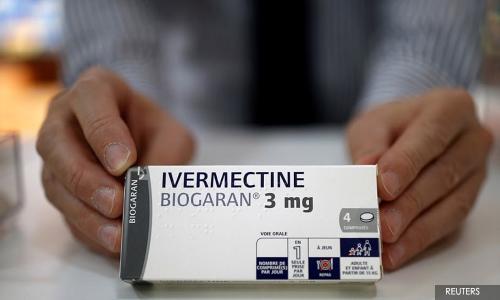LETTER | Is ivermectin a 'silver bullet' to treat Covid-19?
LETTER | With the current Covid-19 crisis worsening daily, the public and some medical professionals have urged the Ministry of Health to adopt ivermectin as a treatment for patients.
They use real-world statistics from countries such as Peru, India and Czech to support the use of the "silver bullet" drug to contain the disease. There are also research studies showing the drug's efficacy in preventing infection, hospitalisations and death in patients.
We understand that people, when desperate, will want to try anything that might work to survive. As scientists, we would prefer to look into the scientific evidence that supports the claim.
It started off with an in vitro study published by Monash University, demonstrating that ivermectin reduced SARS-CoV-2 virus replication by ~5,000 fold in two days. Since then, some countries had started using it for the prevention or treatment of the Covid-19.
To date, many research reports regarding this have been published, with some at the pre-print stage (undergoing peer-review process). While about 30 of these used randomised controlled trials (RCT), which is a gold standard in evidence-based medicine, most studies could not demonstrate whether the drug is effective.
The problem is, almost all of these RCT studies recruited only a very small number of patients, ranging from 24 to less than 400. To obtain a more accurate and conclusive estimate of the effect of ivermectin for Covid-19, scientists have pooled these datasets and used a method called "meta-analysis" to combine systematically and assess the data from multiple studies.
There are a few such meta-analysis reports, in which we will only focus on the peer-reviewed meta-analysis reports consolidating RCT datasets:
1) Roman et al. (2021) combined 10 RCTs recruiting a total of 1,173 participants, and the conclusion was that ivermectin is "not a viable option to treat Covid-19" and it "did not reduce mortality" in patients. The study was published on June 28, 2021, in the Clinical Infectious Diseases journal.
2) Bryant et al. (2021) extracted data from 24 RCTs with 3,406 patients and concluded that "moderate-certainty evidence" found that ivermectin reduced the risk of death among Covid-19 patients and reduced the risk of infection by 86 percent with "low-certainty evidence". Note that the "certainty of the evidence" was assessed using a method called Grade (Grading of Recommendations, Assessment, Development and Evaluations) approach, which assesses the quality of evidence. It has been widely adopted by over 100 organisations, including the World Health Organisation (WHO) and US Centers for Disease Control and Prevention (CDC), for making recommendations in policymaking.
3) Another non-peer-review meta-analysis performed on nine RCTs by Dr Tess Lawrie proposed that ivermectin reduced the risk of infection and death by 88 percent and 83 percent (both with 'moderate-certainty evidence'), respectively.

Notably, none of these meta-analysis studies resulted in a conclusion with "high-certainty evidence". Assuming that the meta-analyses were appropriately conducted, the "moderate-certainty evidence" demonstrated by Bryant et al. (2021) and Lawrie are still shaky.
"Moderate-certainty evidence" means that there is a moderate likelihood in predicting that the "estimated effect" of the drug is close to the "true effect". It also implicates that the studies used in the meta-analysis show inconsistent effects of ivermectin, or there is a risk of bias due to limitations in the design of the study.
Worse off, both studies incorporated the results produced by a non-peer-review study led by researchers from Benha University in Egypt, which was retracted by the pre-print website Research Square due to potential fabrication and duplication of data.
Imagine if the study that recruited a relatively large sample number (N = 200) and showed 90 percent reduction in death cases was excluded from the meta-analyses, it will negatively impact the evidence and conclusions.
Equally ironic is that most experts, when citing the results from Bryant et al. (2021), that ivermectin reduced the risk of infection by 86 percent, no one bothers to mention that the evidence is of "low-certainty".
On the other hand, the decrease in the number of Covid-19 cases in India is not related to the off-label use of ivermectin. The "evidence" that Peru has overcome the pandemic is also a false claim, as the cases kept rising even though the drug was used since May 2020, forcing the government to stop using the drug starting this March.
What we could learn from these ivermectin issues is that evidence-based medicine should rely on high-quality evidence, especially when practising off-label prescription for a large population setting. Whether ivermectin could reduce Covid-19 infection or risk of death, it must be based on "high-quality evidence", not merely any "evidence".
Dr SONG BENG KAH is from the School of Science, Monash University Malaysia.
The views expressed here are those of the author/contributor and do not necessarily represent the views of Malaysiakini.
RM12.50 / month
- Unlimited access to award-winning journalism
- Comment and share your opinions on all our articles
- Gift interesting stories to your friends
- Tax deductable
